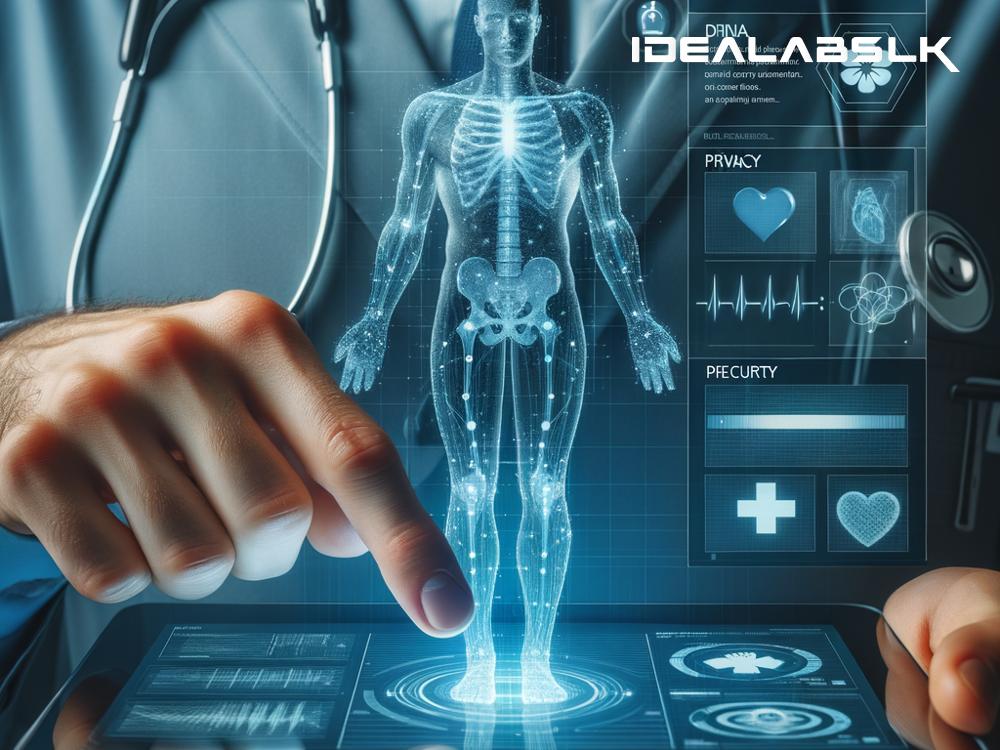Ethics of Digital Twins in Healthcare Solutions
In the world of healthcare, innovation isn't just about making things faster or cheaper; it's about saving lives, improving patient care, and making treatments more effective. One of the groundbreaking innovations in recent years is the concept of digital twins in healthcare. But what does it mean, and why should we care about the ethics surrounding them?
A digital twin, in simple terms, is a virtual replica of something from the real world. This could be anything from a heart or a liver to a patient’s entire body. In healthcare, these digital twins are used for various purposes, including diagnosing conditions, predicting outcomes, and even preparing for complex surgeries. While the benefits are evident, it's crucial to navigate this innovation with a keen eye on ethical considerations.
Patient Privacy and Data Protection
First and foremost, the creation and use of digital twins rely heavily on personal and often sensitive patient data. This brings up significant concerns regarding privacy and data protection. As healthcare providers and tech companies build and use these digital replicas, the question arises: how do we ensure that patients' data is kept safe and not used for unauthorized purposes?
Ethically, there must be a robust framework in place to protect patient data. Patients should be fully informed about how their data will be used and must give their explicit consent. Moreover, stringent measures must be adopted to secure data against breaches, ensuring that patient confidentiality is not compromised.
Bias and Inequality
Another ethical concern is the risk of bias and inequality. Digital twins are only as good as the data they're built on. If the data reflects historical biases, or if it's predominantly collected from certain population groups, digital twins could perpetuate or even exacerbate healthcare inequalities. For instance, a digital twin developed using data primarily from one ethnic group may not be accurate for patients outside of that group, leading to misdiagnoses or ineffective treatment plans.
Ensuring diversity in data and constantly evaluating and updating digital twins to reflect a broad spectrum of humanity is essential. Healthcare solutions must work for everyone, not just a select few.
Accountability and Error
Digital twins, though revolutionary, are not infallible. There will be errors, and sometimes these errors could have serious implications. This brings up questions of accountability. If a mistake made by a digital twin leads to a wrong diagnosis or treatment plan, who is responsible? Is it the healthcare provider, the technology developer, or the algorithm itself?
The answer is complex, but it underscores the importance of establishing clear guidelines and regulations governing the use of digital twins in healthcare. It also highlights the need for ongoing monitoring and validation to ensure that these digital solutions remain accurate and reliable.
Consent and Autonomy
The use of digital twins must also respect patient autonomy. This means patients should have a say in whether their data is used to create a digital twin and how it's utilized in their care. Patients should be empowered with information and given the opportunity to opt in or out. Their choices should be respected, and alternative treatment options should be available for those who are uncomfortable with the use of digital twins.
Looking Forward
The promise of digital twins in healthcare is immense, offering unprecedented opportunities for personalized medicine, improved disease management, and better patient outcomes. However, as we navigate this exciting frontier, we must tread carefully, ensuring that ethical considerations are not an afterthought.
Regulators, healthcare providers, tech companies, and patients must work together to establish a set of ethical guidelines that govern the development and use of digital twins. These guidelines should focus on protecting patient privacy, ensuring equity, upholding accountability, and respecting patient autonomy.
Ultimately, the goal should be to harness the potential of digital twins to revolutionize healthcare while upholding the highest ethical standards. By doing so, we can ensure that this innovative technology serves the best interest of patients, paving the way for a healthier and more equitable future for all.
Navigating the ethics of digital twins in healthcare is not just a technical challenge; it's a moral imperative. As we move forward, let’s commit to putting patients' rights and well-being at the center of this technological revolution. Together, we can unlock the full potential of digital twins in healthcare while safeguarding the values we hold dear.

